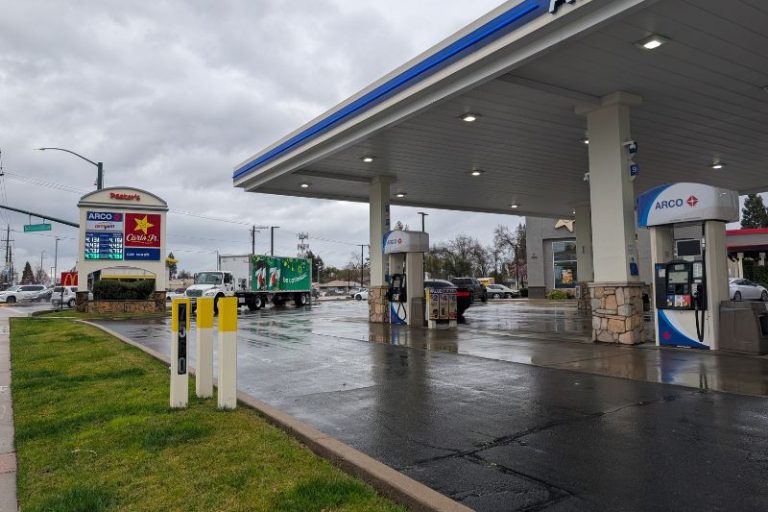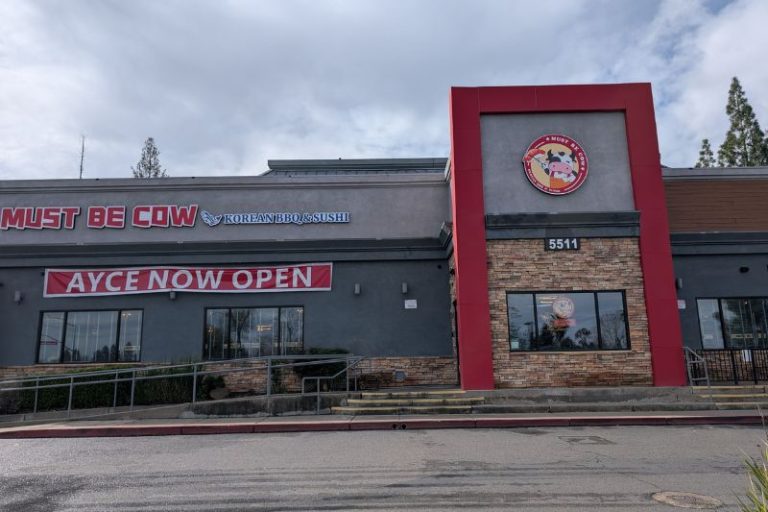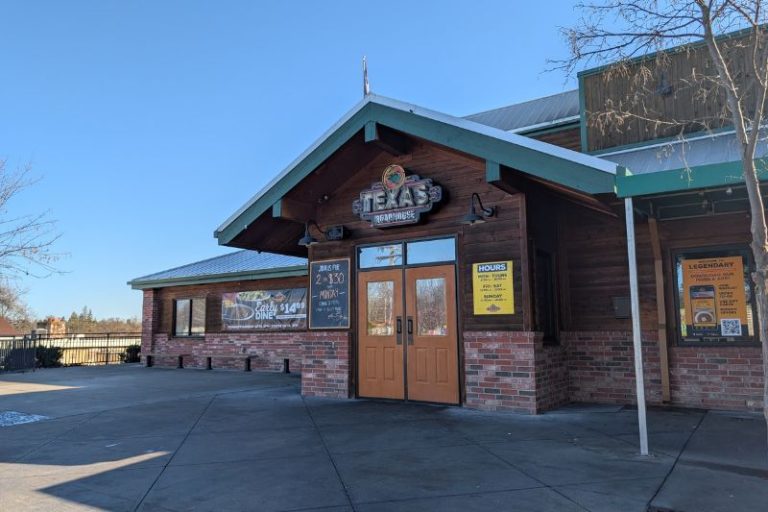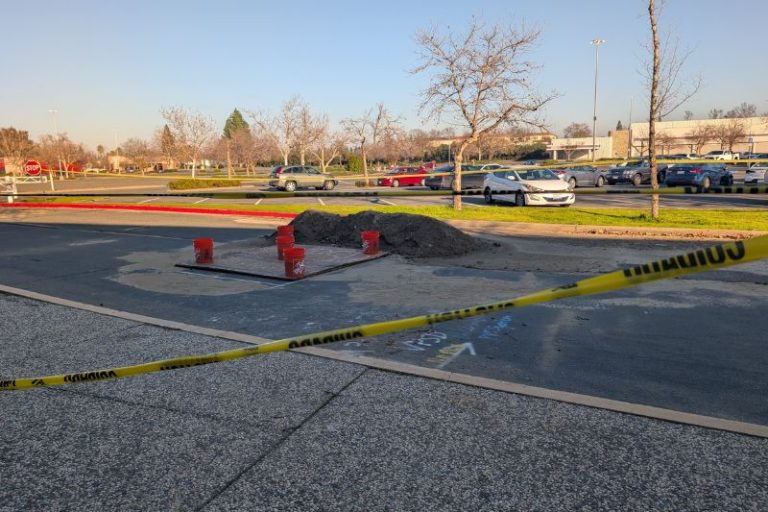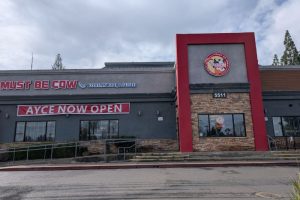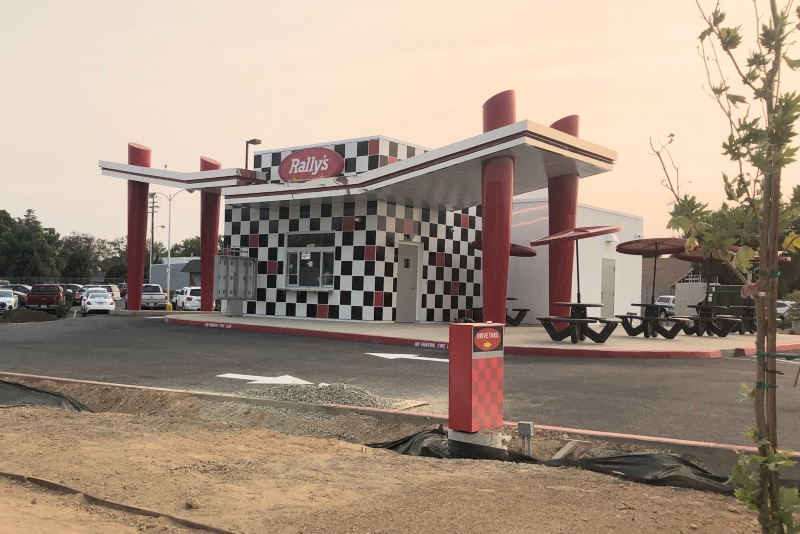
Sentinel staff report–
With construction fencing recently taken down and only a few finishing touches and a final inspection remaining, the franchise owner of a new burger drive-thru in Citrus Heights says he faces one last challenge before he can finally open: finding enough staff during the pandemic.
Ben Aibuedefe, franchise owner of the new Rally’s burger drive-thru at 7911 Auburn Blvd., says his new 827-square-foot restaurant has an ideal model to make it through times like the current pandemic, which saw closures of indoor dining and other hardships faced by restaurants.
“This concept is built for the time we are in… it is the beneficiary of the time we are in,” he told The Sentinel previously, noting his restaurant is drive-thru only by design, with no indoor seating or ordering. He also plans to offer meal delivery by partnering with companies like Uber Eats.
But labor shortages during the pandemic, especially for low-paying jobs, are something now keeping Aibuedefe’s dream of opening a burger franchise from happening.
“For the past four weeks I have scheduled interviews for people, and they don’t show up,” he said in an interview Saturday, noting he’s only been able to find a handful of people to hire out of a total of 45-50 staff he needs to find to be able to open. “So far I have eight that I am trying to hold onto.”
He’s now doing everything he can to attract employees, including reaching out to a local employment training agency, posting a “now hiring” banner outside the location, connecting with the Chamber of Commerce, and posting on Craigslist and other employment listings.
In order to open, the franchisee needs to find at least 45 employees, enough to staff the restaurant for its intended daily hours of operation from 9 a.m. to 1 a.m.
“They will come a week before we open to train the employees,” he said, referring to the Florida-based Rally’s process of sending out trainers to assist in opening new locations. “But I have to have a minimum of 45 employees. If I have 45 they will come.”
Enhanced unemployment benefits from the federal government of $300 per week, on top of existing state unemployment benefits which range from $40-450 per week, have been accused of potentially incentivizing employees to avoid returning to the workforce. But Aibuedefe says he doesn’t believe the labor shortage is to be blamed on unemployment benefits.
“I don’t think it’s just that alone,” he said, noting people are more hesitant to go out during the pandemic, and also may be staying home to care for their families. “In my opinion there are so many things that contribute to (labor shortages) when you have a pandemic like this.”
Aibuedefe said he’s offering starting pay of $13 to $14 per hour for “team members,” who are responsible for a variety of cooking and cashier-related tasks. He initially started at $13 per hour, but increased it up to $14 in response to the tight labor market. He’s also begun offering a bonus for those who stay on through a probationary period, which he said “could range from a $300-500 bonus.”
Shift managers are also being sought, which he said need some fast food experience, but do not need any management experience.
Originally from Nigeria, Aibuedefe came to the United States in his twenties and now lives in Roseville. The 61-year-old said he ran a gas station business in the Bay Area with 12 employee for more than a decade, but decided to leave in order to run a business closer to his home and enable him to spend more time with his three children.
Responding to often-heard calls for employers to offer higher pay to attract workers, Aibuedefe said fast food has a low profit margin, especially with Rally’s, which he said offers “a very reasonable price and very good food.” He said customers can expect an average meal price of $6 to $7 for a burger, drink and fries, but noted that also makes for a “very thin” margin for the owner.
He also said wages paid have to be balanced with other costs of doing business. With a price tag of more than $2 million to get his restaurant built and to the point of getting ready to open, he said he’s already gone over budget — investing his own life savings in the project and also incurring significant debt.
The franchisee said he learned “the hard way” about costs associated with construction, noting he had to spend an unexpected $45,000 to add a water line to the site after learning there was no existing line underground. After that, there was an additional fee of more than $30,000 just to connect to the water service. He also said similar fees were charged by SMUD when hooking up electrical.
“That really was an eye opener,” he said, referring to the connection fees. “That wasn’t in my budget.”
“So there’s a lot that people need to understand,” said Aibuedefe. “The wage that I’m willing to pay I think is reasonable, I think is fair.”
But as the restaurant gets established and more profitable, he plans to share the success with his employees.
“When things get better, you should always help those who are helping you make it,” he said. “If I make $100 profit, I’m going to take at least $50 of that dollar to make sure everyone else that helped is going to (get some of it).”
In contrast, he recalled working at a prior job where the CEO got paid $10 million one year, “and I thought why?”
He said it was because the CEO had accomplished whatever key goal or tasks that had been assigned to him and was rewarded, but he also thought: “I don’t think the CEO was the only reason.”
“I think it is good for it to trickle down,“ said Aibuedefe, noting that a CEO or business leader relies on others, down to the janitor, to make their achievements possible. “If things are going so well, (leaders should acknowledge) I didn’t do this by myself to get here, I should spread it around.”
Those interested in applying for a job at Rally’s can visit the company’s online jobs listing, or drop by the location at 7911 Auburn Blvd., Monday-Friday between 9 a.m. to 1 p.m., when Aibuedefe says he is on site.

